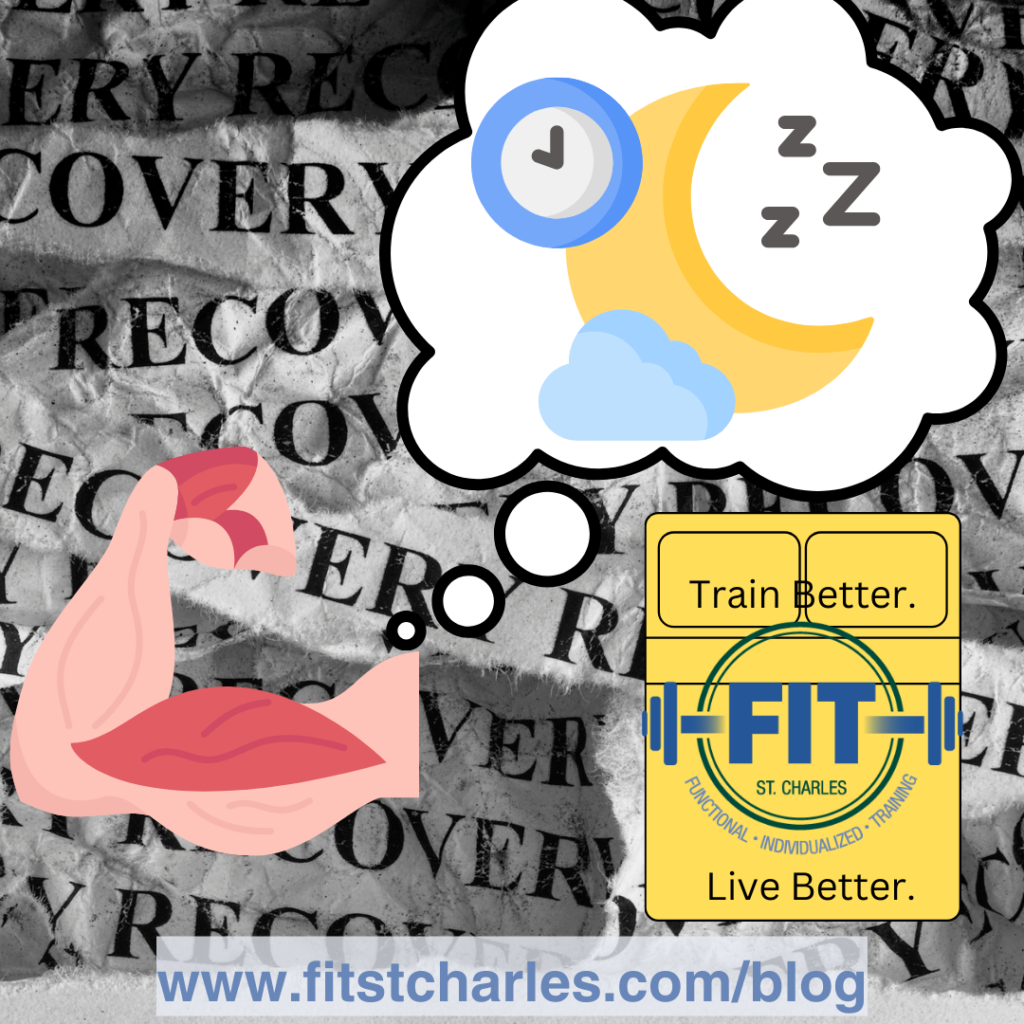
Doctors recommend 7-9 hours of sleep each night for adults and 7-8 hours for older adults. Sleep is important for your physical and mental health; without proper sleep, your mind and body begin to suffer. Sleep is a regenerative period for your body, essential to any fitness journey. Here are a few reasons why sleep is so important:
- Your body repairs muscle tissue while you sleep. This is probably the most obvious reason that sleep is an important part of any exercise routine. During deep sleep, your body releases hormones that repair damage in your body. While these growth hormones are obviously responsible for repairing injury, they are also responsible for repairing the damage to your muscles when you exercise. Because muscle growth depends on your muscles breaking down slightly and then the subsequent repair of that muscle tissue if you want to make gains in the gym, a good night’s sleep increases the efficiency of the muscle growth process and is imperative to any training regimen.
- Insufficient sleep tanks your immune system. Sleep deprivation increases pro-inflammatory cytokines, which negatively affects your immune system. Getting enough sleep helps your body’s immune system to function at its best. Without a healthy immune system, you are much more likely to get sick. Illness can keep you out of the gym. Plus, being sick can slow the recovery process after exercise.
- Sufficient sleep reduces your chance of injuries. Cognitive impairments that go hand-in-hand with not getting enough sleep increases your risk of injury. This is due to fatigue in both your body and your mind. It’s harder to have the correct form and be aware of your body and surroundings if you are fatigued. Reduced cognitive function, along with slower reaction times, is a recipe for exercise-related injury. Even if you have done a certain movement hundreds of times, lack of sleep impairs your ability to perform it correctly, increasing your risk of injury. Conversely, appropriate amounts of sleep allow you to focus, make it easier to perform movements correctly, and decrease your risk of injury!
- Here’s another obvious one- getting insufficient sleep, and therefore being tired, means you are much less likely to actually want to exercise. You are more likely to skip the gym entirely if you are worn out. As discussed above, if you are short on sleep, in order to avoid injury, you might not want to do the most intense forms of exercise when you are tired. However, lighter exercises, like taking a walk or doing bodyweight exercises, still benefit your body, even if you are tired. Plus, exercise has been shown to make it easier for you to fall asleep and stay asleep. So, getting in some exercise that doesn’t put you at a high risk of injury is still a good idea, even when you haven’t had to best night’s sleep.
- Lack of sleep increases your cravings for unhealthy food. Your body needs nutrients to perform. It also needs nutrients to restore. Without a healthy, balanced diet, recovery is harder, and you are more likely to gain weight.
Diet and exercise are often touted as the two most important pillars of health, and sleep is often forgotten as the third pillar. Sleep allows your body to repair damage, maintain your immune system, and make healthier daily choices. It is an essential tool for anyone concerned about their health, and especially important to individuals on a fitness journey! Don’t forget to pencil in time for a full night’s rest into your schedule- you’ll see increased performance a healthier mindset, and you’ll avoid all of the negative effects of sleep deprivation on your body!
Still curious?
https://www.ncbi.nlm.nih.gov/pmc/articles/PMC4689288/
https://www.sciencedirect.com/science/article/abs/pii/S1087079214000720?via%3Dihub
